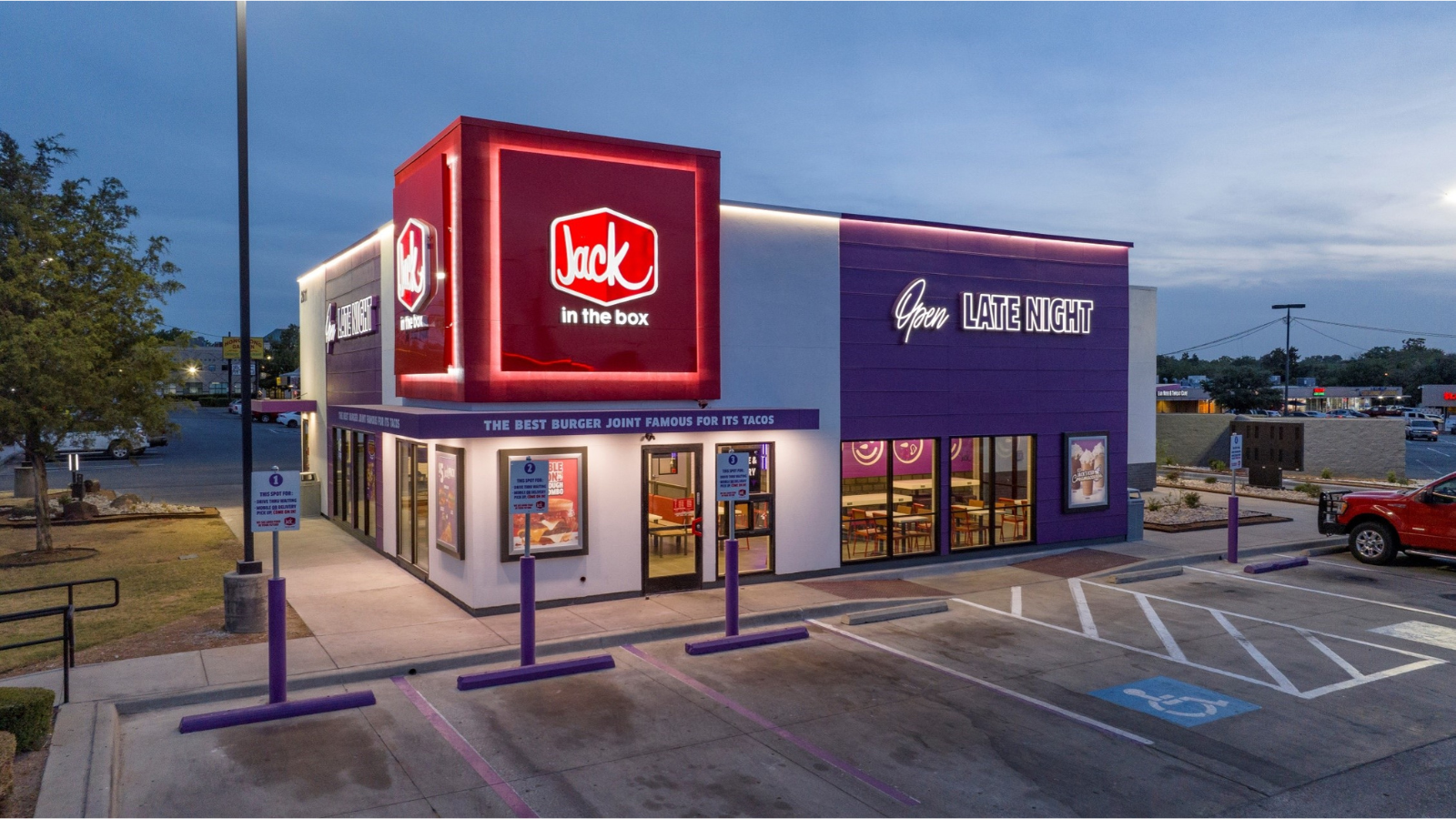Jack in the Box vs BurgerFi: Which Franchise Is Best?
Are you interested in learning the differences between franchising with Jack in the Box vs BurgerFi?

Are you searching for the differences between franchising with Jack in the Box vs Arby’s?
At Jack in the Box, we understand you have plenty of options to choose from when it comes to finding the best franchise opportunity for you.
In this article, we’ll take an in-depth look at five key differences between Jack in the Box and Arby’s when it comes to franchising.
One of the most important steps in your franchising journey is identifying an available market with the brand you’re interested in.
Let’s take a look at the number of current locations in the United States for both companies:
You’ll notice Arby’s has roughly 1,200 more locations in the U.S. than Jack in the Box – leaving plenty of whitespace for franchise growth with Jack.
This means you have an opportunity to develop Jack in the Box in some of the most exciting markets in the country. Plus, a better chance at finding availability in your preferred location.
When you look at our map of available markets, you’ll see most of the cities and states outside of Texas, Nevada, Utah, Montana, and Wyoming are open for new restaurants.
Before you begin the process of becoming a franchisee with either of these brands, you must meet certain investment requirements.
These requirements typically involve a minimum for liquid cash available and net worth along with an initial franchisee fee.
Jack in the Box Investment Requirements:
Arby’s Investment Requirements:
Keep in mind, you’ll also be responsible for paying ongoing royalty fees as a franchisee with both brands.
Jack in the Box charges an ongoing 5% royalty and a 5% ongoing marketing royalty.
Arby’s requires a 4% royalty fee and 4.2% minimum combined advertising fee of gross sales.
If you’re unable to meet the financial requirements mentioned above, there are many potential sources of liquidity that may be overlooked. For example:
At Jack in the Box, we allow our franchisees to have business partners to help them meet our franchise and investment requirements.
Arby’s is looking for multi-unit operators with management experience. However, their franchising website doesn’t currently mention if you can operate with business partners.
Being able to own the real estate associated with your franchise is an important factor to consider when shopping for the best brand to partner with.
At Jack in the Box, our franchisees can purchase or lease the property where their restaurants are located. We even have an entire real estate and leasing team to help you find available real estate and assist with lease negotiations.
Arby’s does not list on their website if they allow their franchisees to own the real estate their restaurant is built and operated on.
Arby’s is one of the most popular sandwich restaurant franchises in the world. Their menu is built around meat with a focus on sandwiches and burgers.
Jack in the Box is recognized as the most popular burger joint famous for its tacos, and we offer a large and distinctive 24/7 menu with five dayparts. This means you can get anything on the menu at any time – day or night.
When it comes to variety, Jack in the Box is the clear winner by offering much more than the delicious burgers and fries we’re known for with items like:
Both brands will mix things up with seasonal limited time offers (LTO’s) to drive store traffic. For example, Jack in the Box typically runs our Monster Tacos LTO during the Halloween Season.
Some of our LTO’s – like our Smashed Jack or French Toast Sticks - will even make it to the menu as a permanent item due to market demand.
We hope this article gave you a better understanding of the advantages and disadvantages between franchising with Jack in the Box and Arby’s.
At Jack in the Box, we’re looking for multi-unit franchisees who are excited to bring our craveable 24/7 menu to their local community.
Here are some additional online resources you may like to check out:
If you have any questions, please feel free to contact our franchise sales & support team.

Are you interested in learning the differences between franchising with Jack in the Box vs BurgerFi?

Are you interested in learning the differences between franchising with Jack in the Box vs Burger King?

Are you interested in learning the differences between franchising with Jack in the Box vs Culver’s?